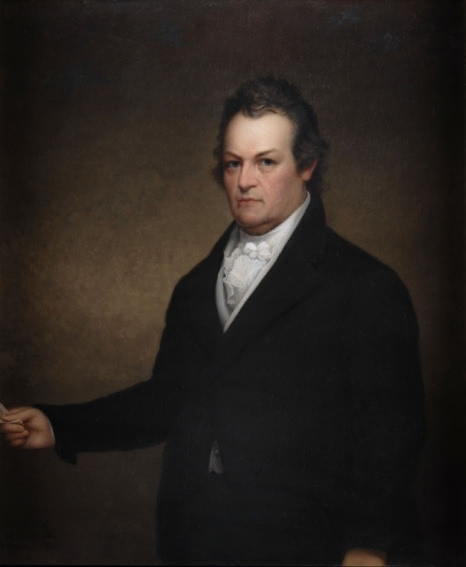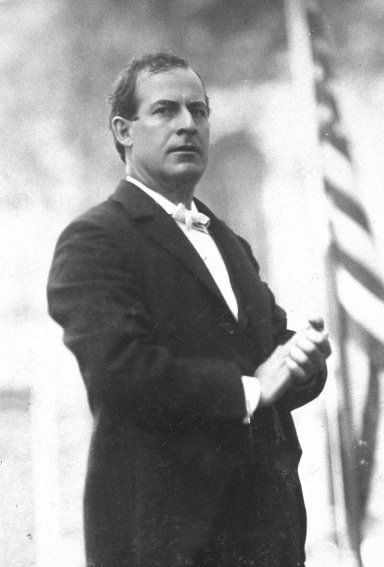Post-2024 Presidential Election Update: I wrote this post two weeks before the 2024 Presidential election. At the time of publication, Al Gore, who was runner-up in the 2000 Presidential Election, was the presidential runner-up with the most recent date of birth. That distinction is now held by Kamala Harris, who was defeated by Donald J. Trump in the November 2024 Presidential election. I discussed the impact of both 2024 election scenarios in the conclusion to this article, so I will let my original article stand beyond this update note.
I published a survey on August 14 looking at the relative success rates of older vs younger candidates in presidential elections. While evaluating the results, I noticed that Al Gore was, as of the 2024 presidential election cycle, the person with the most recent birth date to have finished runner-up in a presidential election. This is notable because as I write this, we are in October 2024, less than one month shy of the 2024 Presidential election. Mr. Gore ran, and lost, 24 years ago. Since Mr. Gore lost what was the closest presidential election since 1876, five separate individuals have finished runner-up in five subsequent elections: John Kerry, John McCain, Mitt Romney, Hillary Clinton, and Donald Trump. All five runners-up from 2004-2020 were born before Mr. Gore. This led me to wonder: Does Al Gore hold the record for the longest tenure as the youngest person – heretofore defined as having the latest date of birth without regard to whether he is still living – to finish runner-up in a U.S. presidential election? I have not studied the issue as of my writing this introduction – but I strongly suspected that Mr. Gore holds the record. albeit there was one other famous election runner-up who I thought may give him a run for his money.

But even assuming that we quickly confirm that Mr. Gore already holds the record for youngest individual to finish runner-up in a presidential election, it will be interesting to find some other notable streaks.
A Few Extra Definitions
Before beginning the survey, I will clarify a few of our ground-rules.
Firstly, I am using the term “runner-up” instead of “loser” so we can quickly close the door on considering any candidates beyond the top two finishers in the Electoral College, including in the minority of elections where more than two candidates won electoral votes. In this survey – we will employ a strict top-two rule – except in the case of 1800, 1820, and 1872.
- 1800: Thomas Jefferson and Aaron Burr finished tied in the Electoral College and the election became the first of two, with the second being 1824, to be decided by the U.S. House of Representatives. However, Jefferson was really running against the incumbent President, John Adams. Burr was Jefferson’s nominal running-mate and ended up finishing tied due to peculiarities in how the Electoral College worked prior to the enactment of the Twelfth Amendment and poor communication by Jefferson electors. I will count Adams as the runner-up instead of Burr. (Burr would have been the youngest runner-up after the 1800, 1804, and 1808 elections, so this choice makes a small difference in our results.)
- 1820: James Monroe won without opposition. One elector cast an electoral vote for Monroe’s Secretary of State, John Quincy Adams. I will treat 1820 as having no runner-up, so whoever is the youngest runner-up going into 1820 effectively receives a bye.
- 1872: Horace Greeley finished runner-up to Ulysses S. Grant in the popular voting and pledged elector count. He died before the Electoral College met. I will consider him the runner-up for 1872.
We determine who the top two candidates are by their finish in the Electoral College vote, not the popular vote. The only election in which this makes a difference is 1860, wherein Stephen Douglas had the second most votes nationally (behind Abraham Lincoln) but only carried a single state en route to a fourth place finish in the Electoral College.
I will begin this survey with the election of 1796, which was the third presidential election. George Washington ran without opposition in the elections of 1788-89 and 1792, making those elections less than useful for our survey.
The Chart
Below, you will find a chart showing every presidential election runner-up going back to 1796, the runner-up’s date of birth, and the holder of the record for runner-up with the most recent birth date as of the conclusion of the election in question.
(Note: I put runners-up who assumed the title of youngest runner-up in bold to make it easier to track the progression of record-holders.)
| Election | Runner-Up | DOB | Earliest DoB Runner-Up |
| 1796 | Thomas Jefferson | 1743/04/13 | Thomas Jefferson |
| 1800 | John Adams | 1735/10/30 | Thomas Jefferson (2) |
| 1804 | Charles C. Pickney | 1746/02/25 | Thomas C. Pickney |
| 1808 | Charles C. Pickney | 1746/02/25 | Thomas C. Pickney (2) |
| 1812 | DeWitt Clinton | 1769/03/02 | DeWitt Clinton |
| 1816 | Rufus King | 1755/03/24 | DeWitt Clinton (2) |
| 1820 | N/A | N/A | DeWitt Clinton (3) |
| 1824 | Andrew Jackson | 1767/03/15 | DeWitt Clinton (4) |
| 1828 | John Quincy Adams | 1767/07/11 | DeWitt Clinton (5) |
| 1832 | Henry Clay | 1777/04/12 | Henry Clay |
| 1836 | William Henry Harrison | 1773/02/09 | Henry Clay (2) |
| 1840 | Martin Van Buren | 1782/12/05 | Martin Van Buren |
| 1844 | Henry Clay | 1777/04/12 | Martin Van Buren (2) |
| 1848 | Lewis Cass | 1782/10/09 | Martin Van Buren (3) |
| 1852 | Winfield Scott | 1786/06/13 | Winfield Scott |
| 1856 | John C. Frémont | 1813/01/21 | John C. Frémont |
| 1860 | John C. Breckinridge | 1821/01/16 | John C. Breckinridge |
| 1864 | George B. McClellan | 1826/12/03 | George B. McClellan |
| 1868 | Horatio Seymour | 1810/05/31 | George B. McClellan (2) |
| 1872 | Horace Greeley | 1811/02/03 | George B. McClellan (3) |
| 1876 | Samuel J. Tilden | 1814/02/09 | George B. McClellan (4) |
| 1880 | Winfield Scott Hancock | 1824/02/14 | George B. McClellan (5) |
| 1884 | James G. Blaine | 1830/01/31 | James G. Blaine |
| 1888 | Grover Cleveland | 1837/03/18 | Grover Cleveland |
| 1892 | Benjamin Harrison | 1833/08/20 | Grover Cleveland (2) |
| 1896 | William Jennings Bryan | 1860/03/19 | William Jennings Bryan |
| 1900 | William Jennings Bryan | 1860/03/19 | William Jennings Bryan (2) |
| 1904 | Alton B. Parker | 1852/05/14 | William Jennings Bryan (3) |
| 1908 | William Jennings Bryan | 1860/03/19 | William Jennings Bryan (4) |
| 1912 | Theodore Roosevelt | 1858/10/27 | William Jennings Bryan (5) |
| 1916 | Charles Evan Hughes | 1862/04/11 | Charles Evan Hughes |
| 1920 | James M. Cox | 1870/03/31 | James M. Cox |
| 1924 | John W. Davis | 1873/04/13 | John W. Davis |
| 1928 | Al Smith | 1873/12/30 | John W. Davis (2) |
| 1932 | Herbert Hoover | 1874/08/10 | Herbert Hoover |
| 1936 | Alf Landon | 1887/09/09 | Alf Landon |
| 1940 | Wendell Willkie | 1892/02/18 | Wendell Willkie |
| 1944 | Thomas E. Dewey | 1902/03/24 | Thomas E. Dewey |
| 1948 | Thomas E. Dewey | 1902/03/24 | Thomas E. Dewey (2) |
| 1952 | Adlai Stevenson II | 1900/02/05 | Thomas E. Dewey (3) |
| 1956 | Adlai Stevenson II | 1900/02/05 | Thomas E. Dewey (4) |
| 1960 | Richard Nixon | 1913/01/09 | Richard Nixon |
| 1964 | Barry Goldwater | 1909/01/02 | Richard Nixon (2) |
| 1968 | Hubert Humphrey | 1911/05/27 | Richard Nixon (3) |
| 1972 | George McGovern | 1922/07/19 | George McGovern |
| 1976 | Gerald Ford | 1913/07/14 | George McGovern (2) |
| 1980 | Jimmy Carter | 1924/10/01 | Jimmy Carter |
| 1984 | Walter Mondale | 1928/01/05 | Walter Mondale |
| 1988 | Michael Dukakis | 1933/11/03 | Michael Dukakis |
| 1992 | George H.W. Bush | 1924/07/12 | Michael Dukakis (2) |
| 1996 | Bob Dole | 1923/07/22 | Michael Dukakis (3) |
| 2000 | Al Gore | 1948/03/31 | Al Gore |
| 2004 | John Kerry | 1943/12/11 | Al Gore (2) |
| 2008 | John McCain | 1936/08/29 | Al Gore (3) |
| 2012 | Mitt Romney | 1947/03/12 | Al Gore (4) |
| 2016 | Hillary Clinton | 1947/10/26 | Al Gore (5) |
| 2020 | Donald J. Trump | 1946/06/14 | Al Gore (6) |
Note: You can find all of the candidates and their dates of birth from this handy Wikipedia page listing all U.S. presidential election winners and runners-up.
Al Gore is indeed our record-holder. He has been the presidential election runner-up with the latest birth date after six elections (and possibly counting), while no other runner-up held the mark for more than five elections. Going in, I suspected that William Jennings Bryan, who was only 36 when he lost in 1896 and then went on to lose in 1900 and 1908, had a chance to have matched Mr. Gore’s mark, but he came up one election short. First, let us look at the runners-up who held the mark for at least one election cycle, sorted by streak:
- 6 Elections: Al Gore (2000-2020 – ACTIVE)
- 5 Elections: DeWitt Clinton (1812-28); George B. McClellan (1864-80); William Jennings Bryan (1896-1912)
- 4 Elections: Thomas E. Dewey (1944-56)
- 3 Elections: Martin Van Buren (1840-48); Richard Nixon (1960-68); Michael Dukakis (1988-96)
- 2 Elections: Thomas Jefferson (1796-1800); Thomas C. Pickney (1804-08); Henry Clay (1832-36); Grover Cleveland (1888-92); John W. Davis (1924-28)
- 1 Election: Winfield Scott; John C. Frémont; John C. Breckinridge; James G. Blaine; Charles Evan Hughes; James M. Cox; Herbert Hoover; Alf Landon; Wendell Willkie; Jimmy Carter; Walter Mondale;
Of the three runners-up who had the latest runner-up birth date for five elections, only DeWitt Clinton and William Jennings Bryan had a chance to extend their streaks to six elections – as in the winner of what would have been their sixth election atop the list was older than they were. DeWitt Clinton’s streak ended when Andrew Jackson, who was about two years his senior, won reelection over Henry Clay in 1832. However, Jackson won 1832 in a landslide, so the result was not much in doubt.

Bryan came very close to holding the mark for six elections – no doubt aided by the fact that he preserved his own streak by hogging the runner-up spot in 1900 and 1908. In 1916, had Charles Evan Hughes defeated Woodrow Wilson, Bryan would have held the mark he set in 1896 going into 1920. Hughes would have won the election had he won California, but Wilson carried California by 0.38% or 3,773 total votes.

One would think that the record streak for being the presidential election runner-up with the most recent birth date would be held by someone who was young, by presidential candidate standards, when he or she started the streak. Was Mr. Gore especially young? He certainly was when he was elected Vice President in 1992, but less so when he narrowly lost the 2000 presidential election to George W. Bush. Let us compare Mr. Gore’s age, as of election day in 2000, to the ages of the other individuals with streaks of three-or-more elections as of the first week of November in their election losses:
- Al Gore (52 years and 7 months)
- DeWitt Clinton (43 years and 8 months)
- George B. McClellan (37 years and 11 months)
- William Jennings Bryan (36 years and 8 months)
- Thomas E. Dewey (42 years and 7 months)
- Martin Van Buren (57 years and 11 months)
- Richard Nixon (47 years and 10 months)
- Michael Dukakis (53 years and 0 months)
(Note: Ages are rounded up or down to nearest whole month.)
Al Gore was significantly older than the other three runners-up who held the youngest runner-up for at least four elections, and also older than Richard Nixon, who held the mark for three elections from 1960-68. He was notably five years younger than Martin Van Buren, who was almost 62 when he became the “youngest” runner-up. Van Buren surprisingly defended the crown for two elections thanks to the 67-year old and former record-holder Henry Clay and 66-year old Lewis Cass finishing runner-up in 1844 and 1848 respectively (Van Buren ran as a third-party candidate in 1848 and secured 10% of the popular vote while being on the ballot in 19 of 30 states).
Mr. Gore was not an especially young candidate in 2000 – albeit I suspect he was still on the younger side of average. One would not have expected him to be younger than the next five individuals who lost presidential elections. From 2004-2020, there were only two elections, 2008 and 2012, in which Mr. Gore could have been supplanted. Former President Barack Obama is about 12 and one-half years younger than Mr. Gore, but Mr. Obama won in a landslide in 2008 and comfortably in 2012, so Mr. Gore’s record was safe in both cases. Both the winning and losing candidates were older than Mr. Gore in 2004, 2016, and 2020. Mr. Gore was born within 25 months of the 2004 winner (George W. Bush) and 2012, 2016, and 2020 runners-up (Mitt Romney, Hillary Clinton, and Donald Trump), so he has remained youngest by relatively narrow margins.
Astute political observers will note that Mr. Gore’s streak can be extended one more time in 2024 in the event that the Democratic nominee, Kamala Harris, wins the election. The Republican nominee, Donald Trump, was older than Mr. Gore when he finished runner-up in 2020 and unsurprisingly remains older than Mr. Gore in 2024, so his finishing runner-up again would leave Mr. Gore as the youngest runner-up for the seventh election. Ms. Harris is more than 16 years younger than Mr. Gore, so she would supplant Mr. Gore as the youngest runner-up in the event she comes up short. Were Ms. Harris to lose in November assume the youngest runner-up title, she would make an interesting bit of youngest runner-up history. Ms. Harris turns 60 on October 20, 2024. She would be the second oldest person to assume the youngest runner-up title. The record mark is held by Winfield Scott, who was 66 when he took the crown from Martin Van Buren with his defeat in the 1852 presidential election against Franklin Pierce. The current second-oldest runner-up to assume the title is Charles C. Pickney, who was a few months shy of 59 when he took the title from the man who defeated him in the 1804 election, Thomas Jefferson. Unlike Scott, Pickney was able to defend the youngest runner-up crown in the only certain way by also finishing runner-up in the 1808 presidential election, on that occasion to James Madison.
I will conclude with one uplifting note for our youngest presidential runners-up. While few men aspire to hold records tied to losing a presidential election, those record-holders would, if asked, most likely want to live to see their record broken. I specifically did not describe my quest as looking for the youngest individual to have finished runner-up in a presidential election because youngest usually implies living and it is entirely possible that the presidential election runner-up with the most-recent date of birth may not be alive. I was mildly surprised to find that of the 25 past holders of the title of presidential runner-up with the most recent birth date, 23 lived to see their record broken. The only two who died holding the record were DeWitt Clinton, who held the mark for 20 years (1812-1832) and died with four years left in his streak in 1828, and Wendell Willkie, who held the mark from 1940-44 and suffered an untimely death in October 1944, one month before the election. We should certainly expect Mr. Gore to make it 24 of 26 when his record-tenure as the presidential runner-up comes to a close in a few weeks or, alternatively, in 2028.